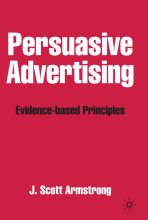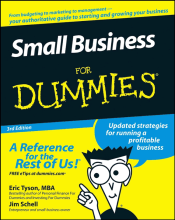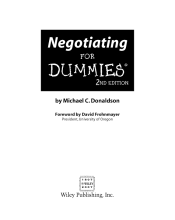Decisions - Search strategies and determinants - Determinants of searching
11 important questions on Decisions - Search strategies and determinants - Determinants of searching
The extent of information search for consumer decision problems depends on five factors, what are they?
- Perceived risk
- Involvement
- Familiarity and expertise
- Consumer shopping style
- Time pressure
Explain perceived risk and its subfactors.
This is a determinant of information search.
It is the degree of loss in the event that a wrong choice is made.
A) Degree of uncertainty that a choice may be wrong
B) Severity of the consequences of a wrong choice
The higher you perceive the risk to be, the more extensive will be your information.
What are the five types of risks?
- Performance risk: product/service may not perform well or not as well as some other alternatives (included is the physical safety risk)
- Social risk: reference group members and significant others may not like it
- Psychological risk: the product/service may not reflect oneself
- Financial risk: product may be overpriced; may exist a lower price option
- Obsolescence risk: product may be replaced by newer substitutes.
- Higher grades + faster learning
- Never study anything twice
- 100% sure, 100% understanding
How can marketers overcome the different types of risk?
- Performance risk: offer product warranties
- Financial risk: price guarantees
- Obsolescence risk: allowing trade-ins
- Social and psychological risks: offering liberal return, exchange or refund policies
Explain involvement as a determinant of information search.
Involvement is the interest a consumer takes in the product.
The higher the involvement, the more you search for information before making a selection.
Explain familiarity and expertise as a determinant of information search.
Familiarity/prior experience imply that the purchase problem is solved in the routine problem-solving mode.
Expertise is the understanding of the attributes of a product or service class.
Consumers with prior expertise seek more information about the impending purchase than do those less knowledgeable. (positively related)
Consumers with prior experience/familiarity seek less information about the impending purchase than consumers who are not familiar with the product class. (negatively related)
What is the deficit hypothesis?
Intuitively you would think that consumers with low prior expertise would seek more information to overcome their knowledge deficits.
However it turns out that consumers with prior expertise seek even more information about the impending purchase than do those less knowledgeable.
What is the ignorance paradox?
Consumers who don't know also don't know that they don't know.
Why do specialty stores have to employ more knowledgeable salespersons than mass merchandisers?
Expert consumers seek more information than do novices. Expert consumers visit the specialty stores while novices visit mass merchandisers. To service the expert consumers, specialty stores need to hire knowledgeable salespersons.
Explain consumer shopping style as a determinant in information search.
Some are avid comparison shoppers who search extensively to get the best value. Others are brand loyal, sticking to known and tried brands, thus finding it unnecessary to search anew for information.
Some find shopping interesting, while others find it a boring chore.
Explain time pressure as a determinant in information search.
Time pressure is making consumers look for more convenient outlets for shopping (home-shopping networks, catalog shopping and the Internet).
Time-pressed consumers are likely to cut their information search, comparison-shopping and decision-making time.
The question on the page originate from the summary of the following study material:
- A unique study and practice tool
- Never study anything twice again
- Get the grades you hope for
- 100% sure, 100% understanding































